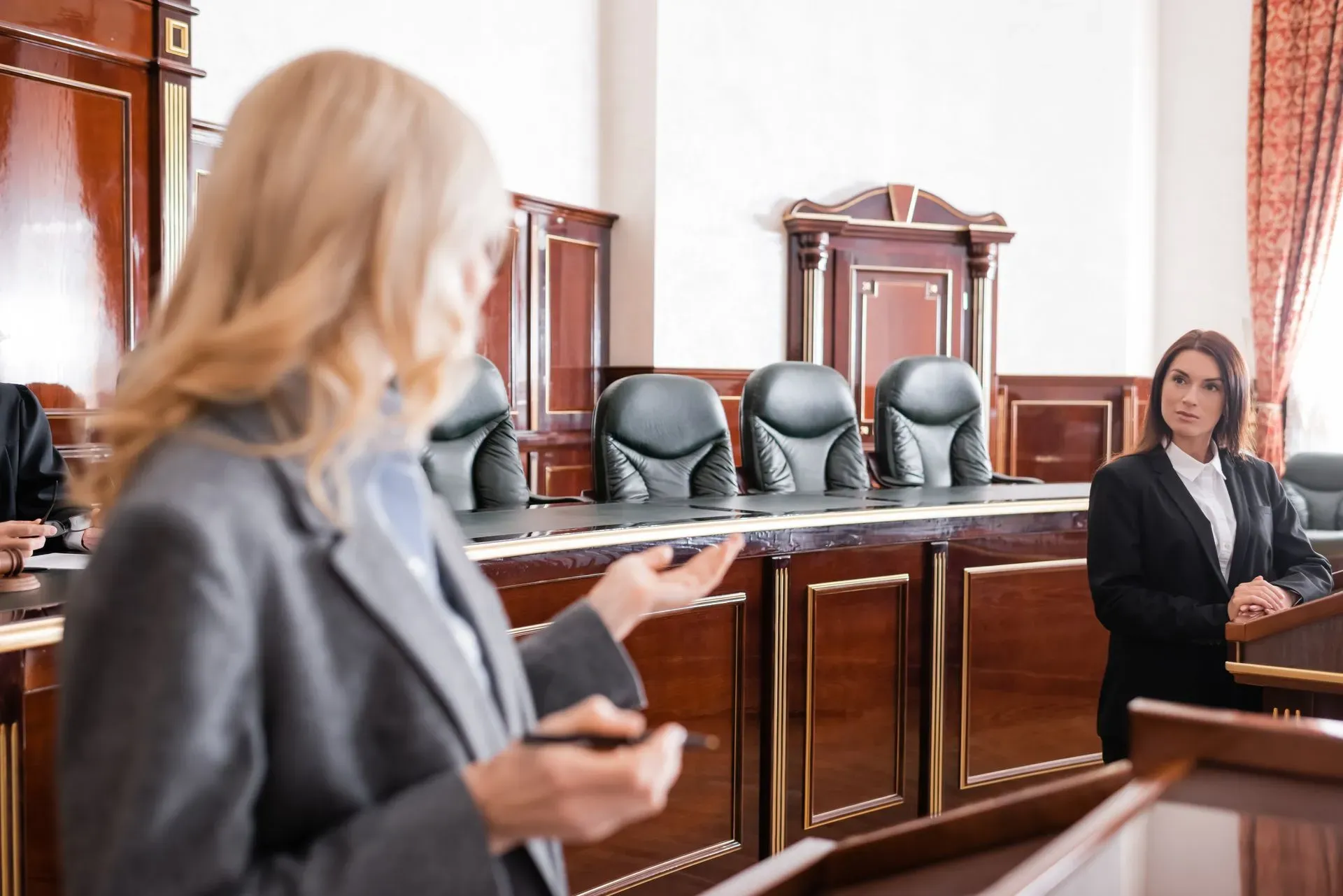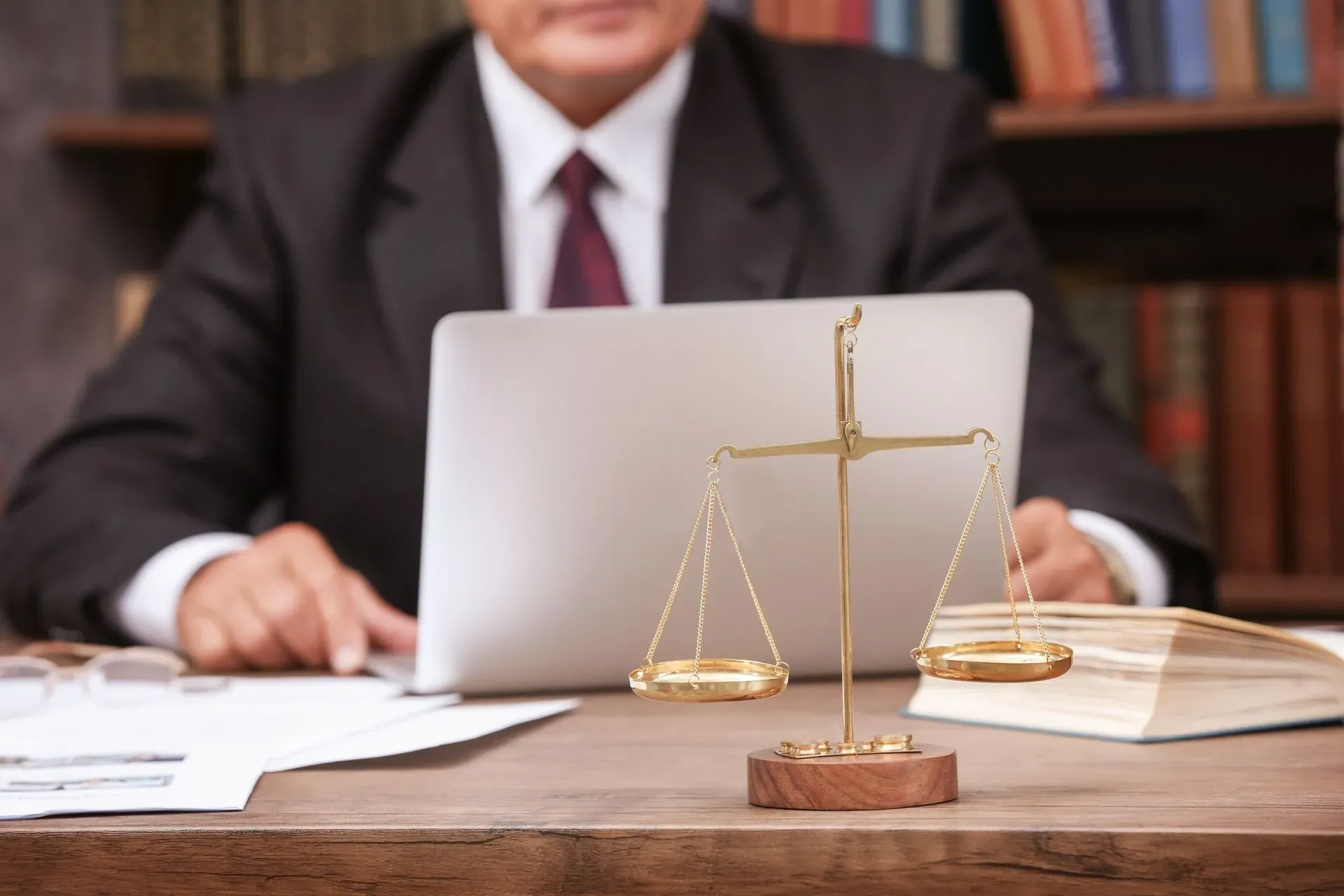Criminal lawyers are vital for defending individuals or organisations who are facing criminal charges. When someone or an entity is accused of a crime, they will need legal representation to help them navigate the complexity of the criminal justice system. As part of this process, the accused must understand their rights and recognise how a criminal defence lawyer can protect and defend them throughout the case.
In this blog, we will explore what is a criminal lawyer, their duties and responsibilities in a criminal case, and the roles they have in the courtroom. We will also tackle the qualifications and skills of a criminal lawyer, the benefits of hiring one as well as how to find reliable criminal lawyers in Canberra for your case.

Image by Freepik
What does a criminal lawyer do in Australia?
A criminal defence lawyer or also referred to as a defence counsel, represents an individual or entity accused of a criminal offence during criminal proceedings. The primary role of criminal defence lawyers in the criminal justice system is to protect the legal rights of their clients, present evidence and arguments in their favour, and ensure that they receive a fair trial.
The criminal lawyer is responsible for advising their client regarding legal matters based on criminal law, negotiating plea bargains, and advocating for them in court. They work to establish a strong defence strategy and challenge the prosecution's case to secure the best possible outcome for their client.
Depending on one's specialisation, level of experience, and the specific needs and requirements of their clients, the specific duties and responsibilities of a criminal lawyer can vary. In general, criminal lawyers can be categorised either as a criminal defence lawyer or a prosecution lawyer.
Regardless of the conditions, criminal lawyers can also serve as either solicitors or barristers. In Australia, criminal lawyers are responsible for representing and providing legal advice to clients who are charged with serious criminal offences such as:
- Traffic and Driving Offences
- Apprehended Violence Orders (AVOs)
- Drug Offences
- Murder and Manslaughter Charges
- Fraud Charges
- Assault Charges
- Property Offences
They help in defending the accused from criminal prosecution and other related activities such as bail applications, appeals, and sentencing submissions. Also included in a criminal lawyer job description are the following:
- conducting a scheduled client meeting to discuss the case status and its progress
- analysis and investigation of the crime scene
- carrying out independent investigations into the case and gathering evidence
- identifying and questioning relevant witnesses, such as those acquainted with the defendant and specialists like medical professionals and ballistics experts
- coordinating with the Crown Prosecutor to establish necessary requirements
- researching on criminal law, relevant case law, procedural law, statutes, and criminal codes
- establishing a case strategy in collaboration with the defence counsel
- engaging in negotiations with the opposing legal team regarding charges and potential settlements
- drafting, submitting, and presenting motions, such as motions to suppress evidence or dismiss charges
- attending court proceedings and presenting arguments on behalf of the defendant in front of the judge and jury
- preparing, filing, and arguing appeals to challenge the original verdict or penalty
What is the role of the criminal defence team inside the courtroom?
The defence team plays a crucial role in the criminal justice system by protecting the rights of the accused person or entity who committed a criminal offence under criminal law. Criminal defence lawyers provide legal representation for the accused person in all criminal proceedings, safeguarding the client's rights throughout the entire process.
When preparing for a court trial, the defence team which comprises of criminal defence lawyers, paralegals, investigators, and expert witnesses are responsible for fulfilling the following roles.

Image by pressfoto on Freepik
- the defence team of criminal lawyers conduct a comprehensive analysis of the case, meticulously examining such evidence, and identifying potential vulnerabilities in the criminal prosecution case.
- criminal lawyers together with other members undertake independent investigations to gather evidence that can substantiate their client's case. This includes interviewing witnesses, investigating crime scenes, and reviewing legal documents.
- criminal lawyers offer legal aid to their clients, assisting them in understanding the specifics of the criminal law, and the charges applied against them, exploring potential defence strategies, and delivering legal services competently.
During a trial, the defence team are responsible for fulfilling the following roles inside the courtroom:
- when deemed suitable, the defence team of criminal defence lawyers might engage in negotiations with the prosecutor to reach a plea bargain. This arrangement entails the accused person agreeing to plead guilty to a reduced charge, receiving a less severe sentence, or obtaining other concessions in return.
- throughout the trial, the defence team presents their case in court, conducts cross-examinations of prosecution witnesses, and tests police evidence presented by the prosecution to establish reasonable doubt in the minds of the jurors.
- if the accused person is found guilty, the defence team will argue for a just and suitable sentence, considering their client's background, circumstances, and the nature of the criminal offence. At this point, criminal defence lawyers will present arguments aimed at achieving a fair trial.
- if necessary, the defence team of criminal lawyers can file an appeal on behalf of their client, contesting the conviction or sentence by highlighting legal errors or other legal issues that warrant reconsideration.
What qualifications and skills should a criminal defence lawyer have in Australia?
In Australia, an aspiring criminal lawyer needs to enter law school, complete a law degree and some other electives, and expose oneself to the legal practice of criminal law in order to become a criminal lawyer and work in a law firm.
Bachelor of Law
The standard duration for completing a Bachelor of Laws course is typically four years. Upon completing Year 12 or an equivalent qualification, students have the option to enrol in either a single degree course or a combined degree course. The combined degree course typically spans approximately five years, allowing students to pursue additional areas of study alongside their legal education.
Juris Doctor or Law Degree
After completing a bachelor's degree in another discipline, individuals who want to advance more in their career can enrol once again for a Juris Doctor, which corresponds to three more years of study.
Graduate Diploma in Legal Practice
In addition to a law degree, the individual should also complete practical legal training in order to acquire a Graduate Diploma in Legal Practice. This can include either on-the-job practical legal training for 3-5 months or finishing a practical legal training program if your work experience was shorter than three months.
Practising Certificate
Within five years of completing your degree, submit an application for admission to the Admissions Authority in your respective state or territory. Then complete a supervised practice at a law firm for 18 to 24 additional months to qualify for a Practising Certificate from your local Law Society.
After completing these requirements, the individual can now become a criminal lawyer in Australia and provide legal practice in a high-level criminal law firm in his or her state or territory or to the Supreme Court. Significantly, it takes around 10 to 15 years before an individual successfully becomes a criminal lawyer in Australia.
Skills
In terms of skills and abilities, a good criminal lawyer in Australia must possess the following.
- Comprehensive skills
- Criminal lawyers have a deep understanding of the criminal law and the criminal justice system. They are adept at preparing and submitting motions and appeals, employing their expertise to secure favourable outcomes for their clients.
- Communication skills
- One of the responsibilities of a criminal lawyer is to prepare well-structured legal documents to be able to deliver compelling arguments whether in favour of or against the defendant. Having great communication skills, criminal lawyers are experts in negotiating and delivering persuasive techniques during court trials.
- Analytical skills
- Criminal lawyers need to possess analytical skills to process information provided by their clients and witnesses so they can research it and be able to develop effective legal strategies. Having analytical skills allows them to quickly process information, enabling them to provide timely responses to opposing lawyers and witnesses during criminal proceedings.
- Problem-solving skills
- Attempting to establish a person's guilt or innocence is a difficult and complex responsibility which is why criminal lawyers must possess problem-solving skills to identify clues and evidence from witnesses and use them to develop effective legal strategies.
- Interpersonal skills
- Most criminal lawyers possess strong interpersonal skills, allowing them to create and maintain relationships with their clients and colleagues. This helps them to understand the needs of their clients and find solutions that meet those needs. By fostering trust and creating a comfortable environment, they encourage open and honest communication where clients and witnesses willingly share information that may prove valuable to their respective cases.
What are the benefits of hiring a criminal defence lawyer?
Hiring a criminal defence lawyer offers several benefits, including:
Professional Legal Advice
Criminal cases require a great deal of knowledge and understanding of the legal system. With their extensive knowledge and experience in criminal law, Canberra lawyers can provide expert advice and reliable assistance in navigating legal matters. You can also ensure that your case is fairly adjudicated. This ensures that any judgments or actions taken are under the law.
Thorough Case Analysis
Criminal defence lawyers are highly trained and experienced to assess even the most complex legal cases. They have the expertise to conduct meticulous investigations, compiling all pertinent evidence and information, in order to develop a powerful defence strategy that delivers optimal outcomes. Not only that, but they take into account any mitigating circumstances that may arise in your case, as well as explore potential defences or opportunities for plea bargaining.
Best Possible Outcome
One of the primary responsibilities of a criminal lawyer is representing clients in court. By offering early legal representation, your lawyer may be able to investigate and prepare for the case before a plea has been made or any charges have been filed. The sooner you seek legal representation, the higher your chances are of achieving the best outcome for your case.
Protected Rights
Being accused of a crime basically puts a person in an intimidating situation. By hiring a criminal defence lawyer, you can guarantee that your legal rights are not only protected but all investigations made against you are conducted properly, legally and ethically. Your lawyer will assist you in understanding your rights and work towards providing the necessary protection and guidance to preserve them.
Avoid Legal Penalties
Experienced criminal defence lawyers are skilled at understanding all aspects of criminal law including prosecution and bail applications. This means that whatever case you might have, they can explore different ways on how you can avoid legal penalties and possible imprisonment. As trained professionals who have undergone years of rigorous legal education and practice, they can explore potential avenues for reducing your criminal sentence.
Can a criminal defence lawyer defend himself?
A criminal lawyer can technically choose to represent himself in court if he is facing criminal charges. However, it is generally not advisable for anyone, including criminal lawyers, to act as their own attorney as self-representation poses some potential risks. It is often better to have an experienced criminal defence lawyer who can provide an unbiased perspective and effectively advocate on one's behalf.

How to find a reliable criminal lawyer in Canberra?
When searching for a reliable criminal lawyer in Canberra, you can start by asking for recommendations from people you know and trust. This way, you can guarantee that the lawyer you hire is reputable.
Check your research online directories for listings, and read reviews from former clients. You can also go to your local bar association to confirm the lawyer's credentials and whether he or she has experience in handling criminal cases and has good standing with the local court system. Furthermore, you may attend a free initial consultation with several criminal lawyers in the area to identify a suitable candidate.
Conclusion
When charged with a criminal offence, there is no better option but to seek the help of a professional and qualified criminal lawyer to ensure the best possible outcome for your case. Every legal system has distinct criminal laws and processes, which may vary from those in other Australian states. That is why you should hire a criminal lawyer who has undertaken practical legal training and has in-depth knowledge of your state or territory.
By hiring a criminal lawyer with expertise in criminal law, you can take advantage of their skills and experience of local courts, judges, and prosecutors to gain an edge in developing a strong defence strategy while safeguarding your rights and ensuring fair treatment during the legal process. On top of that, you can navigate the intricate aspects of the legal system with confidence and assurance, knowing that your interests are effectively represented.
If you need a criminal defence lawyer to defend your case, get in touch with Andrew Byrnes Law Group for professional legal advice and representation. With years of experience and a proven track record, we are dedicated to providing exceptional client service and successful results.
'
Date:
May 25, 2025
Author:
Himangi Ticku
/
Junior Partner





















.jpg)
.jpg)
.jpg)
.jpg)
